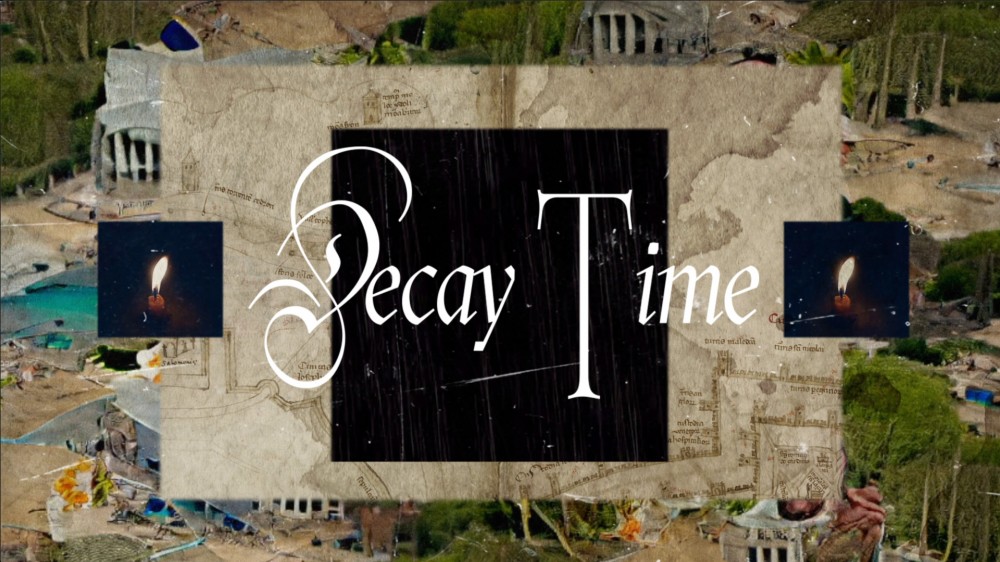
Stephen McLaughlin & Maxwell Sterling summon images from the digital void in Decay Time
Layering GAN animations with Baroque lettering, video montage and esoteric iconography, Stephen McLaughlin responds to the Maxwell Sterling’s disorientating sonics with a maximalist cinematic assemblage.
On Turn Of Phrase Maxwell Sterling interpolates spatiotemporal displacement into highly emotional, richly textured sound design, feeding neoclassical instrumentation and arrangements into an experimental electronics centrifuge to distill a sound that is at once atmospherically expansive and technically rigorous. The album, released last year on AD 93, was recorded between the rural coastal town of Morecambe, Lancashire, Los Angeles and London, a geographical sprawl that is reflected in Sterling’s stretched and screwed sonics, which manifest a uniquely tangible sense of disorientation and dislocation. You recognise the spaces Sterling evokes with his music, though it is a recognition that develops tangentially to a certainty that these are places you have never been and will never be able to visit.
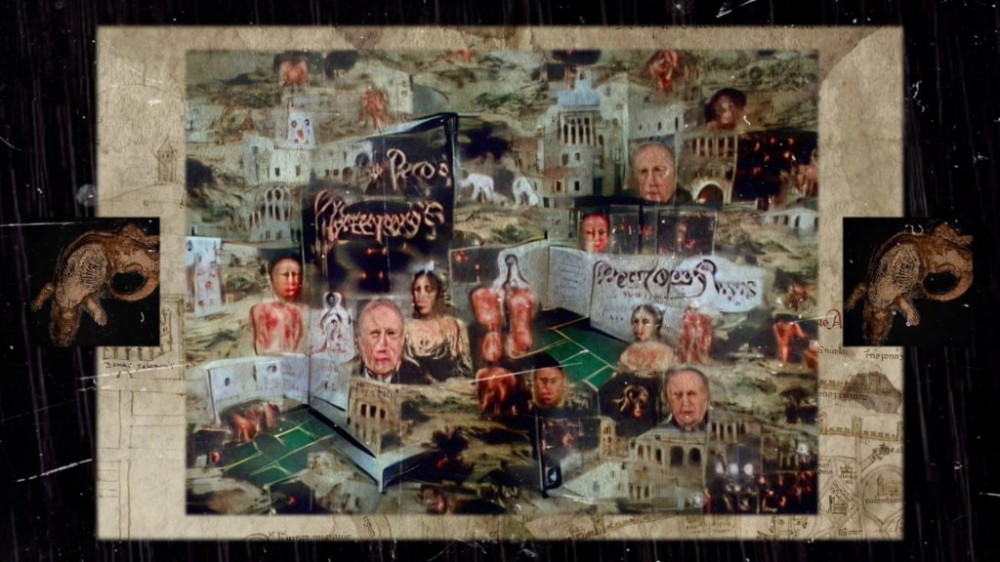
It’s this anachronism, of space and time, of composition and process, that audiovisual artist Stephen McLaughlin teases out with his maximalist visual response to ‘Decay Time’, itself a distillation of the live AV show the duo have been working on since last year, that premiered at the 2021 edition of MIRA Festival. Drawing inspiration from the ornate, multi-layered visual compositions of Peter Greenaway’s Prospero’s Books, McLaughlin arranges twitching GAN animations, video montage, Baroque lettering and esoteric iconography to construct a dream like sequence of intersecting histories and bisecting timelines, a blossoming rhizome of aesthetic practices past, present and future. “I’ve always admired the slightly incongruous theatricality of the setting mixed with (then) cutting edge video and graphic layering technique, which is in turn now made an anachronism by the shifting of technological standards,” says McLaughlin of Prospero’s Books.
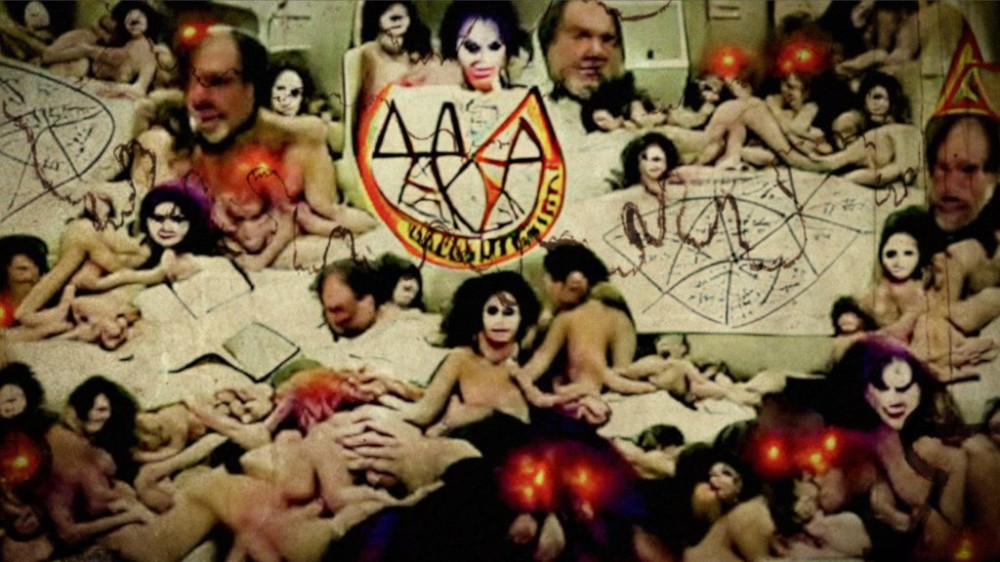
“That for me perfectly summed up the uneasy tension of the elements of the album and wanted to translate that into something that worked with what was already there with the Nicola’s artwork, who also helped out on some lettering in the video,” he explains. “After a couple of years where every aspect of culture has seemed to be synthesised in real-time by operators that are less than transparent and out of our control. I wanted a way to capture the uncanniness of being a powerless bystander as it happens in front of you in a rush of detail. I started experimenting with image creation on neural networks. The process feels like the weird technocratic (un)reality we are existing in currently– there is a seemingly democratic dialogue with the machine at points where we are allowed to feel in control but in the end, the outcome is a bastardized, hall of mirrors reflection of good intention.”
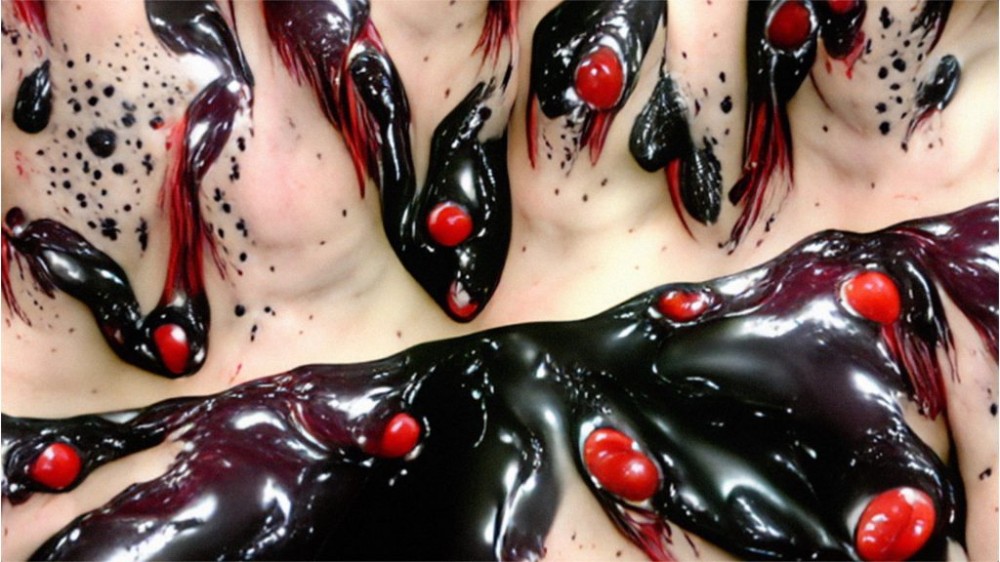
The vague outlines of public transport, crowds of people, magazine covers, domestic appliances, city parks and world heritage sites suggest themselves out of the algorithmic miasma, strange candles, which are also mason jars, which are also smartphones, burn steadily as distorted effigies and dismembered limbs are littered across the craggy surface of a monochrome landscape. Writhing masses of naked flesh and stock haircuts surge beneath middle english text and strobing Medieval symbols, Boschian hellscapes oscillate between the infernal and the mundane, while eternal rain falls against infinitely unfurling maps of the ancient world. As Sterling’s score becomes more visceral and dance floor adjacent, so too do McLaughlin’s visuals begin to incorporate the biomechanical textures and neon hues of contemporary, post-club aesthetics.
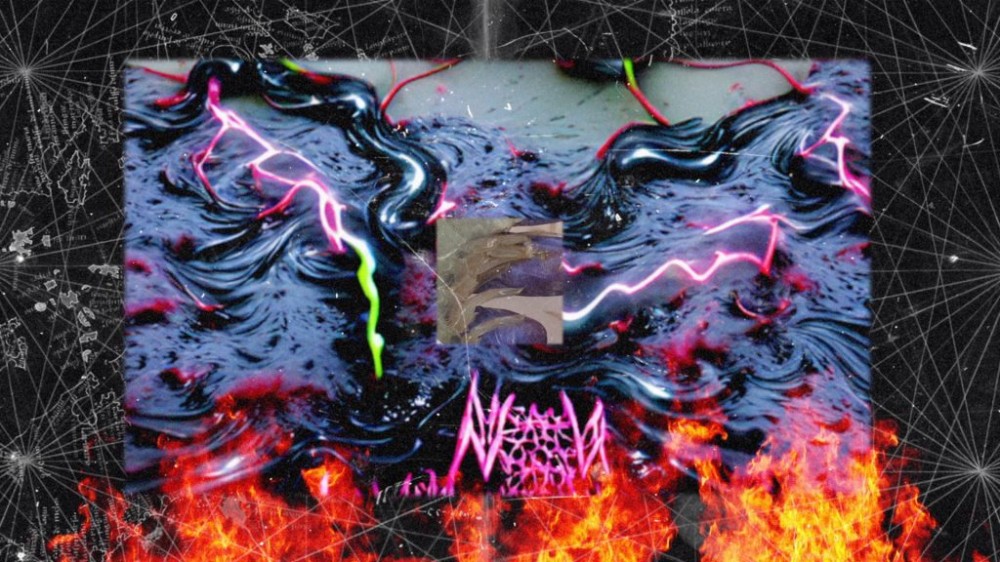
Classical portraiture, smeared incomprehensible by neural nets, emerges from between two squares of swimming pool lifted straight out of the golden years of vaporwave. In McLaughlin’s eyes, and through Sterling’s ears, all points across this ever-expanding network of reference decay and bleed into each other, an impossibly complex patchwork conjured forth from transistors and silicon. “I wanted to hone down the swathes of work I had done for the live show into something that spoke to the occult nature of summoning images from the void like this,” says McLaughlin. “As a designer I am generally sceptical of AI solutions to human problems and have already been in the position where tools I helped create have ended up making me redundant, so I am very aware that this stuff is potentially letting something out of the bottle that could do more harm than good, much like a book of spells.”
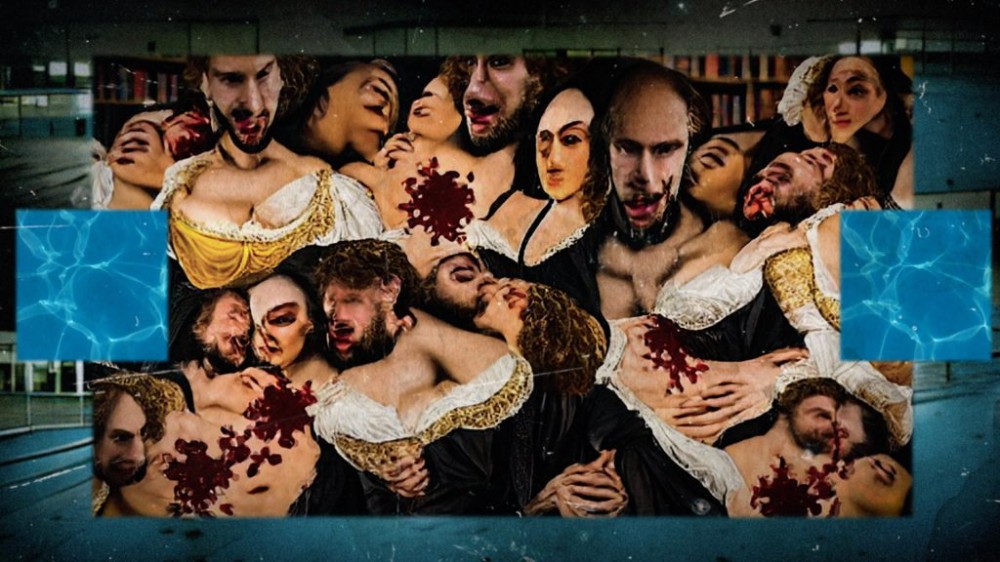
Turn Of Phrase is out now on AD 93. You can find Maxwell Sterling on Instagram, Twitter and at his website. For more information about Stephen McLaughlin and his work, you can follow him on Instagram and visit his website.
Maxwell Sterling and Stephen McLaughlin will bring their live AV show to Iklectik Art Lab on April 20. Tickets are available here.



